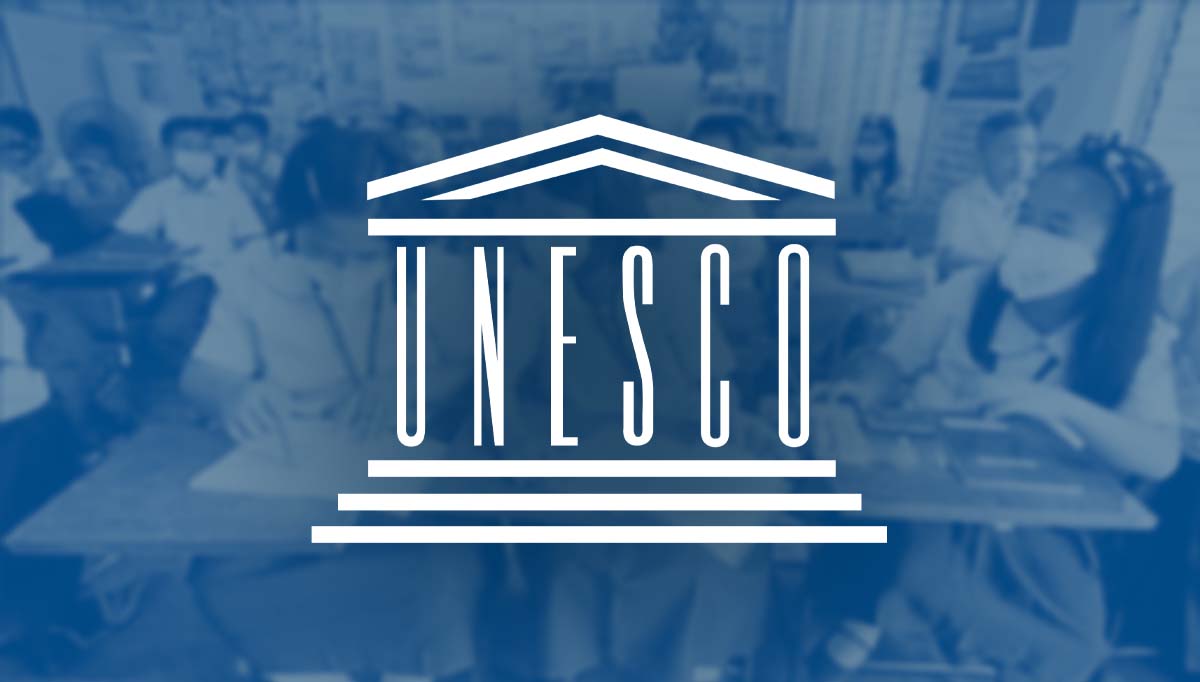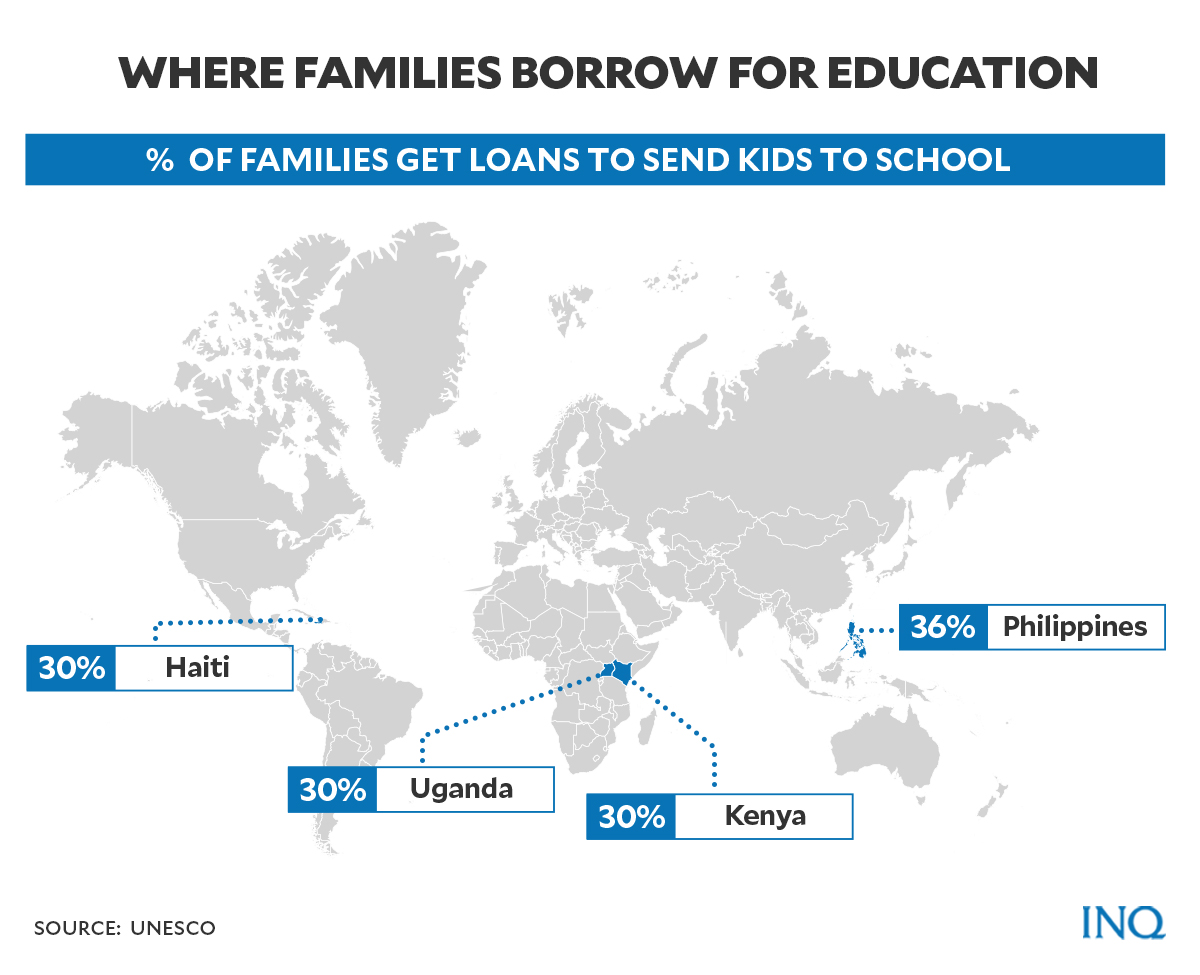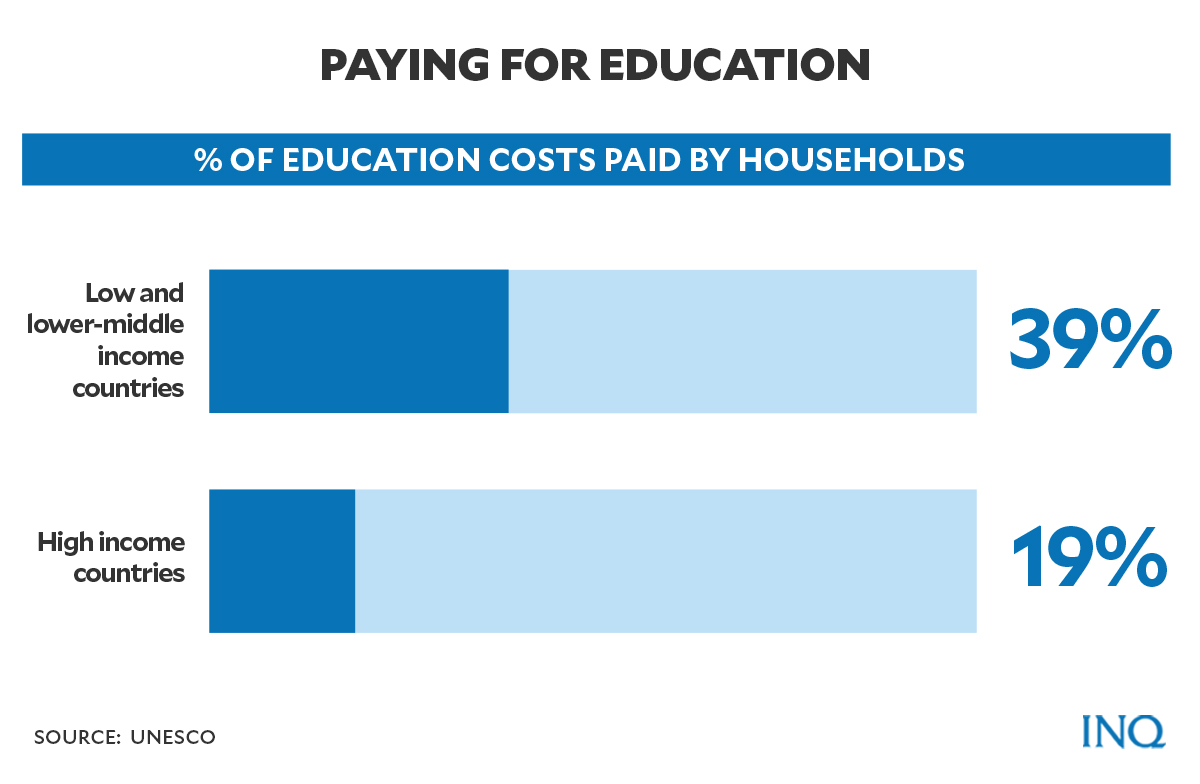Unesco: 36 percent of PH families incur debts to send kids to school
MANILA, Philippines—More than 30 percent of Filipino families rely on loans to send their children to school and provide them education, according to a report of the United Nations Educational, Scientific and Cultural Organization (Unesco).
In its 2021 Global Education Monitoring Report, Unesco said at least 36 percent of Filipino families have to obtain loans or incur debts to afford their children’s education. The report has been presented at the Rewired Forum in Dubai on Dec. 12.
The Unesco report said the Philippines had the highest percentage of families borrowing money for their children’s education among several countries surveyed for the report.
The number is higher in the Philippines than poorer countries like Uganda, Haiti and Kenya, where 30 percent of families resort to loans or credits to pay for education.
“Globally, one in six families saves to pay school fees, while percent of families (or one in twelve) in low- and middle-income countries have to borrow money to pay for their children to go to school,” Unesco said.
Article continues after this advertisementThe figures prompted Unesco to call on governments and urge them to keep their promise of providing free one year of pre-primary and 12 years of primary and secondary education.
Article continues after this advertisementData from Unesco showed that households from the poorest countries carry the disproportionately heavier burden of costs of education.
“In low- and lower-middle-income countries, households cover 39 percent of the cost of education with the government covering the remainder, compared to only 16 percent in high-income countries,” the report said.
Hidden costs, inclusivity
The UN agency also revealed that public education, is in fact, not entirely free, carried many hidden costs and is often not inclusive.
“Households account for 30 percent of total education spending globally and 39 percent in low- and lower-middle-income countries,” Unesco said.
This is equivalent to one-third of household education expenditure in low- and middle-income countries.
“Part of it is due to wealthier families trying to give their children a competitive advantage,” the Unesco report said.
“But a large part is spent on pre-primary, primary and secondary education that governments committed to provide free of charge,” it added.
The report further said that between 2009 and 2020, of around 100 low- and middle-income countries, at least 3.2 percent of households’ financial disbursements was being spent on education.
Unesco said school uniforms and other supplies covered most of the costs, accounting for almost two-fifths of the amount households were spending on education in 15 low and middle-income countries.
“We have underestimated just how much families are still paying for education when according to governments it should be free,” said Manos Antoninis, director of the Global Education Monitoring Report.
“On top of this, the impact of COVID-19 has squeezed family budgets further. Many simply can’t afford to pay for school costs as a result. Governments must look closer at the amount that families are paying,” he continued.
Governments, according to Antoninis, should focus on “ensuring that education is free at the point of access and that the poorest aren’t priced out of a good quality education.”
In terms of inclusivity, Unesco said many public education systems still fail to prevent stratification and segregation—a societal mechanism wherein individuals are sorted or categorized, which leads to inequalities and unequal opportunities.
“Households often incur high education costs through hidden fees, avoidable out-of-pocket payments and additional expenditure to compensate for what public schools do not offer,” Unesco said.
“While it is common to criticize education systems that have opened the doors to non-state providers, which exacerbate inequality, many public education systems fail to prevent stratification and segregation,” it added.
Among one of the myths noted by Unesco, however, was the thought that private schools and universities are better than public education systems.
“Comparison of public and private school examination pass rates is the usual evidence relied upon for school league tables as reported by the media and read by parents,” the report said.
“In practice, student intake varies, with better-off, well-educated and highly aspirational parents far more likely to choose a private school,” Unesco explained.
“Private schools, in turn, may be able to screen students to maximize the possibility of top results. When such factors are controlled for, the gap between public and private schools is usually slashed or eliminated,” it continued.
On the other hand, the UN agency also acknowledged that many households also pay for private supplementary tuition, especially during school closures.
These kinds of services and payments, according to Unesco, are something many of the poorest cannot afford.
“Currently, however, around half of countries do not regulate the practice at all,” said Unesco.
Next steps
Addressing the issues listed in the report, the UN agency issued some recommendations for governments across the world.
First, Unesco advised governments to increase efforts in providing free and publicly funded access to a year of pre-primary and 12 years of primary and secondary education.
“Governments need to monitor out-of-pocket education spending with household income and expenditure surveys,” said Unesco.
It said that most governments often only give attention to formal payments and turn a blind eye on other less well-documented costs that lead to rising inequality—such as private supplementary tuition.
“The effectiveness of policies that aim to target resources at disadvantaged learners needs to be evaluated and not assumed.”
The agency also called on governments to strengthen their capacity to monitor and enforce regulations.
“Governments need to build a relationship of trust with non-state providers, encouraging them to register, eliminating arbitrariness in rules and communicating the right incentives for them to run their schools effectively for learners’ benefit,” Unesco said.


